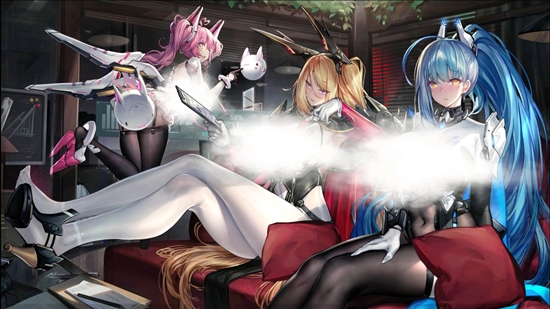
In China, game makers like the creators of Cross Core apparently don’t need to let censors check for unpermitted exposure and motion of cartoon body parts before a game is released. But then censors may get to work white-clouding nude breasts and adding cloth to skirts and blouses. According to NicheGamer (February 10, 2024):
Chinese mobile game Cross Core has been censored after its launch, altering lewd artwork as well as disabling animations and removing skins.
Gigantic jiggling breasts and revealing outfits being covered up, animations being removed, and skins being ousted from the store are only some of the things that were censored.
NicheGamer helpfully links to a YouTube video by rendermax showing censored versions of scenes in conjunction with original versions. The video will be of greatest interest to students of giant swaying breasts.
Of course, such censorship is nothing new anywhere in the globe. Some country governments are less worried about saving horny adolescents from cartoon boobs than others, though, and the sadomasochistic Chinese government falls into the more-worried category.
But China censors a lot more than unclad cleavage in video games. In a survey of what’s involved, The Guardian reported (“No cults, no politics, no ghouls: how China censors the video game world,” July 15, 2021):
China’s video game market is the world’s biggest. International developers want in on it—but its rules on what is acceptable are growing increasingly harsh. Is it worth the compromise?…
The Chinese body responsible for censorship, the National Press and Publication Administration, has some very clear rules—no copyright infringement, for instance, and no sharing state secrets—but most of its guidelines are less precise. Works that “endanger social morality or national cultural traditions” are banned; as is media that “promote cults and feudal superstitions”. This vagueness gives the censors almost unlimited power and flexibility when it comes to deciding what is and isn’t allowed. Many of the rules come down to the “moral paternalism” of Beijing’s leadership, says Lokman Tsui, an expert on Chinese censorship. “They really see themselves as moral authorities—not just the authority on the truth, but also the authority on morality.”
Some of the most immoral people in the world are moralists. If the National Press and Publication Administration really were an “authority on morality” and strove to be moral itself, the first thing the organization would do is shut down.






